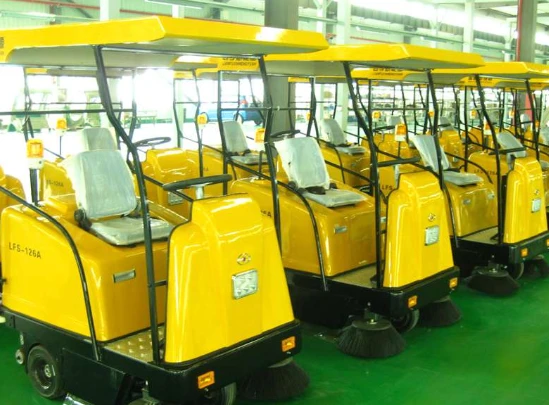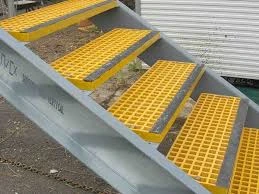
-
 Afrikaans
Afrikaans -
 Albanian
Albanian -
 Amharic
Amharic -
 Arabic
Arabic -
 Armenian
Armenian -
 Azerbaijani
Azerbaijani -
 Basque
Basque -
 Belarusian
Belarusian -
 Bengali
Bengali -
 Bosnian
Bosnian -
 Bulgarian
Bulgarian -
 Catalan
Catalan -
 Cebuano
Cebuano -
 China
China -
 China (Taiwan)
China (Taiwan) -
 Corsican
Corsican -
 Croatian
Croatian -
 Czech
Czech -
 Danish
Danish -
 Dutch
Dutch -
 English
English -
 Esperanto
Esperanto -
 Estonian
Estonian -
 Finnish
Finnish -
 French
French -
 Frisian
Frisian -
 Galician
Galician -
 Georgian
Georgian -
 German
German -
 Greek
Greek -
 Gujarati
Gujarati -
 Haitian Creole
Haitian Creole -
 hausa
hausa -
 hawaiian
hawaiian -
 Hebrew
Hebrew -
 Hindi
Hindi -
 Miao
Miao -
 Hungarian
Hungarian -
 Icelandic
Icelandic -
 igbo
igbo -
 Indonesian
Indonesian -
 irish
irish -
 Italian
Italian -
 Japanese
Japanese -
 Javanese
Javanese -
 Kannada
Kannada -
 kazakh
kazakh -
 Khmer
Khmer -
 Rwandese
Rwandese -
 Korean
Korean -
 Kurdish
Kurdish -
 Kyrgyz
Kyrgyz -
 Lao
Lao -
 Latin
Latin -
 Latvian
Latvian -
 Lithuanian
Lithuanian -
 Luxembourgish
Luxembourgish -
 Macedonian
Macedonian -
 Malgashi
Malgashi -
 Malay
Malay -
 Malayalam
Malayalam -
 Maltese
Maltese -
 Maori
Maori -
 Marathi
Marathi -
 Mongolian
Mongolian -
 Myanmar
Myanmar -
 Nepali
Nepali -
 Norwegian
Norwegian -
 Norwegian
Norwegian -
 Occitan
Occitan -
 Pashto
Pashto -
 Persian
Persian -
 Polish
Polish -
 Portuguese
Portuguese -
 Punjabi
Punjabi -
 Romanian
Romanian -
 Russian
Russian -
 Samoan
Samoan -
 Scottish Gaelic
Scottish Gaelic -
 Serbian
Serbian -
 Sesotho
Sesotho -
 Shona
Shona -
 Sindhi
Sindhi -
 Sinhala
Sinhala -
 Slovak
Slovak -
 Slovenian
Slovenian -
 Somali
Somali -
 Spanish
Spanish -
 Sundanese
Sundanese -
 Swahili
Swahili -
 Swedish
Swedish -
 Tagalog
Tagalog -
 Tajik
Tajik -
 Tamil
Tamil -
 Tatar
Tatar -
 Telugu
Telugu -
 Thai
Thai -
 Turkish
Turkish -
 Turkmen
Turkmen -
 Ukrainian
Ukrainian -
 Urdu
Urdu -
 Uighur
Uighur -
 Uzbek
Uzbek -
 Vietnamese
Vietnamese -
 Welsh
Welsh -
 Bantu
Bantu -
 Yiddish
Yiddish -
 Yoruba
Yoruba -
 Zulu
Zulu
Jan . 28, 2025 05:26
Back to list
Gratings & Covers
FRP vessels, known as fiberglass reinforced plastic vessels, have become integral components in industries requiring durable and corrosion-resistant storage solutions. With the ever-evolving demands of today's industrial applications, companies need to understand not only the benefits of these vessels but also the practical experiences, expertise, and trustworthiness associated with their use.
Moreover, FRP vessels can be customized to suit a variety of operational needs, a feature highly valued by engineers. From varying chemical compositions to accommodating different temperature and pressure conditions, the adaptability of FRP vessels is unmatched. A senior engineer from a water treatment facility commented on how the design flexibility of FRP vessels enabled them to optimize their processing systems effectively, leading to enhanced operational efficiency and environmental compliance. The authority of an FRP vessel manufacturer comes not just from their technical expertise but also from certifications and quality assurance practices. Reputable manufacturers adhere to rigorous industry standards such as ASME, ASTM, and ISO certifications. These certifications are testimony to the quality, safety, and reliability of their products, providing an added layer of trust for clients. Trustworthiness in the context of FRP vessels is further reinforced through client testimonials and case studies that showcase successful implementations and long-term performance. Customers seeking to invest in FRP vessels often refer to such evidence, finding confidence in the collective positive experiences of others. A logistics company, for instance, emphasized how reliable FRP storage tanks ensured seamless operations even under adverse weather conditions, significantly improving the company's logistics chain reliability. In conclusion, the choice of FRP vessels reflects a blend of durable performance, expert customization, authoritative quality standards, and credible operational success. Companies investing in these vessels benefit not just from immediate economic advantages but also from long-term reliability and sustainability. As industries continue to seek dependable solutions to complex storage challenges, FRP vessels stand out as the preferred choice, backed by solid evidence of practical efficiency and trusted quality.


Moreover, FRP vessels can be customized to suit a variety of operational needs, a feature highly valued by engineers. From varying chemical compositions to accommodating different temperature and pressure conditions, the adaptability of FRP vessels is unmatched. A senior engineer from a water treatment facility commented on how the design flexibility of FRP vessels enabled them to optimize their processing systems effectively, leading to enhanced operational efficiency and environmental compliance. The authority of an FRP vessel manufacturer comes not just from their technical expertise but also from certifications and quality assurance practices. Reputable manufacturers adhere to rigorous industry standards such as ASME, ASTM, and ISO certifications. These certifications are testimony to the quality, safety, and reliability of their products, providing an added layer of trust for clients. Trustworthiness in the context of FRP vessels is further reinforced through client testimonials and case studies that showcase successful implementations and long-term performance. Customers seeking to invest in FRP vessels often refer to such evidence, finding confidence in the collective positive experiences of others. A logistics company, for instance, emphasized how reliable FRP storage tanks ensured seamless operations even under adverse weather conditions, significantly improving the company's logistics chain reliability. In conclusion, the choice of FRP vessels reflects a blend of durable performance, expert customization, authoritative quality standards, and credible operational success. Companies investing in these vessels benefit not just from immediate economic advantages but also from long-term reliability and sustainability. As industries continue to seek dependable solutions to complex storage challenges, FRP vessels stand out as the preferred choice, backed by solid evidence of practical efficiency and trusted quality.
Next:
Related Products









